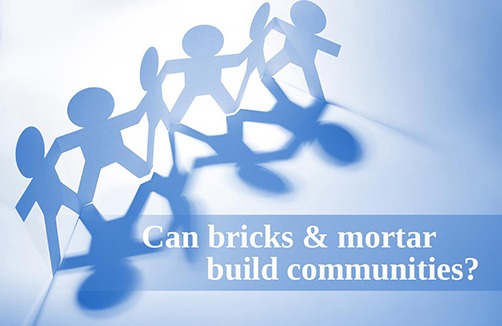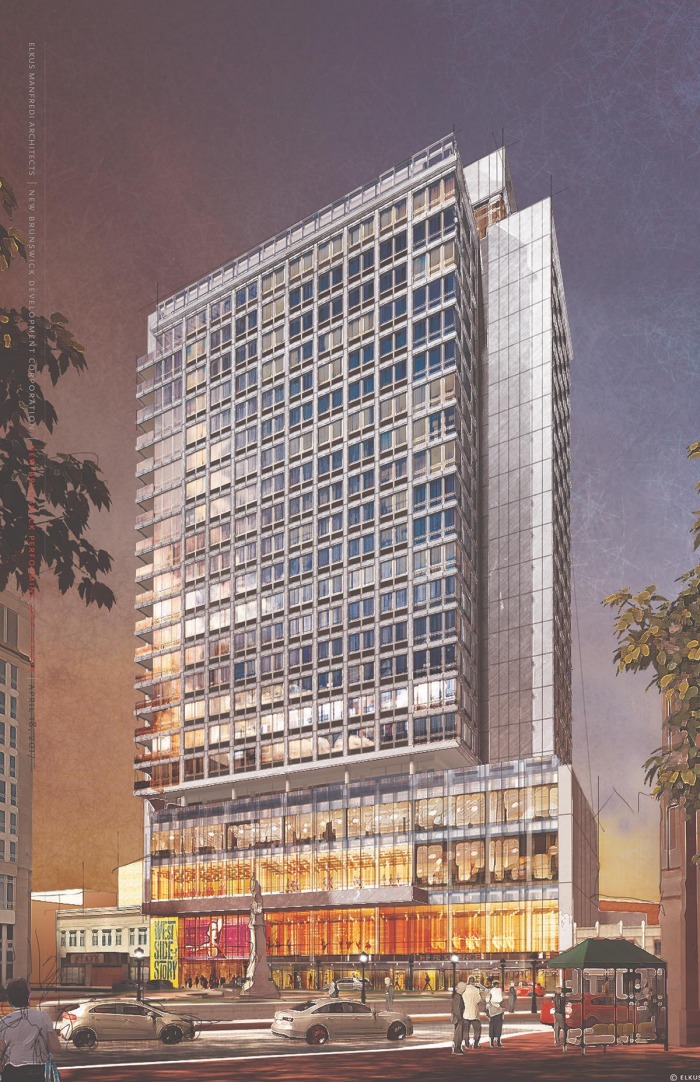
A conversation with Jacob Fisher, Regional VP at Pennrose
In our new series of interviews with members of the Rutgers Center for Real Estate’s Advisory Board or Leaders Council, Kevin Riordan of the Center sat down with Jacob Fisher, Regional Vice President at Pennrose to get his insights and perspectives on the firm.
KR: The Pennrose tagline is “Bricks & Mortar | Heart & Soul.” What is the message it’s meant to convey about your brand?
JF: Pennrose has been in business for over 40 years. We specialize in multifamily development – affordable, mixed income, and market rate. The bulk of our work is done through partnerships with public and private sector entities and non-profit organizations. Our tagline defines both the physical structure and people sides of our business. From a development standpoint, we have a commitment to building attractive community assets that will improve neighborhoods. At the same time, we are focused on providing great residential experiences to the people who call our communities home.
KR: How does the Pennrose brand affect acquiring new business?
JF: The foundation of future business is built on the relationships and reputation from previous work. The partnerships we have cultivated over the years are critical. Although many of our development opportunities come from acquisition of vacant land and RFPs, even more come from existing relationships. We stand by our track record of a consistent approach to execution. This is not only for projects we developed last year, but five and ten years ago. A big test of success is not how a building looks when it opens, which better be great, but what a property looks like down the road – how it’s managed and maintained. Because of the nature of our business, we tend to be long-term owners and managers. When we are talking to potential partners, we always offer them tours of our existing portfolio in their area.
KR: What changes in design or amenities have you seen since you started with Pennrose in 2006?
JF:Funding agencies, such as New Jersey Housing and Mortgage finance Agency have placed greater emphasis on third-party certified environmental programs, such as LEED, Enterprise Green, and Passive House. In 2008, Pennrose completed one of the first LEED certified affordable housing developments in New Jersey. Since then, we have seen more states take up the mantel of pushing for environmental certification. Lately, there has been a greater focus on the actual payback of building to higher efficiency and putting green systems, such as energy efficient appliances, LED lighting and PV (solar)systems. Energy efficient building and environmental awareness in construction are also perceived as an amenity for residents.
KR: Completing significant redevelopment projects in urban infill areas, which include an affordable housing component has probably led to some interesting public/private partnerships. Could you provide some recent examples?
JF: Building through partnerships in the non-profit and government sectors leads in a lot of interesting directions and always to innovative or creative developments. Here are a few examples of projects that we’re working on.
The New Brunswick Performing Arts Center, which broke ground a couple months ago, is a mixed-use development with residential, office and two new theater spaces (600+ seats). The 207-unit development is a partnership among Pennrose, New Brunswick Development Corporation (Devco), the City of New Brunswick, Rutgers University, Middlesex County, New Jersey Economic Development Authority, New Brunswick Cultural Center, and New Brunswick Parking Authority, along with 11 other groups and organizations.
Another example under construction is a 15-story, 129-unit mixed-income development in Fort Lee. Known as Hendrick on the Park, the new building sits just south of the George Washington Bridge and has awesome views of the New York City and the Bridge. The mixed-income development is financed with a combination of tax credits and conventional financing and is being developed in close cooperation with the Borough of Fort Lee.
Finally, in Cherry Hill we are working with the Jewish Federation of Southern New Jersey to develop age-restricted affordable housing with specialized units for adults with developmental disabilities. The site is approved for 160 units. The development will not only provide an important housing resource and needed supportive services, but it will help the Township meet its affordable housing obligations. We expect to begin construction on the first 80 units mid-2018.
KR: What are some of your greatest challenges to meeting your corporate objectives?
JF:Tax reform, or the possibility of tax reform, is having a significant impact to the funding of affordable housing. The Low Income Housing Tax Credit is the major financing vehicle used extensively by Pennrose and all developers of affordable rental housing. Though the Trump Administration has expressed broad support for tax credit program, it is also pushing for significant cuts in the corporate tax rate. The potential for tax cuts has already reduced demand and pricing for tax credits and slowed down the process for funding projects. This may not settle down until tax reform is complete. Other proposed budget cuts, for example to HUD, will also impact the production of affordable housing.
New Jersey has its own specific challenges. On one hand, the State is on the forefront nationally in terms of creating aggressive requirements for affordable housing; on the other, these are largely unfunded mandates. Towns must choose between meeting affordable housing obligations by supporting large-scale inclusionary housing developments, which may lead to an overbuilding without land or infrastructure to support, or to rely on the tax credit program, which doesn’t have the resources to cover all of the projects proposed. There is a need for a new State subsidies or programs, perhaps to support more mixed income developments, to help towns grow in a responsible way AND meet affordable housing obligations.
KR: What about opportunities?
JF: Pennrose is a resource to municipalities and other developers, because we have broad knowledge and experience developing projects using a wide range of funding sources. We are interested in working as redeveloper with municipalities or joint venturing with other firms to help towns to meet their fair share obligations. We also have the property management and compliance capacity to help fulfill and ensure compliance with those requirements.
Also, regarding opportunities, we are always looking for new talent on our development and management teams. In addition to our work in New Jersey, we have an active pipeline of business in 15 states. Our headquarters is in Philadelphia and we have offices and staff in Baltimore, Boston, Cincinnati, Chattanooga, TN, Atlanta, and New York City. Pennrose was recently named one of the 2017 “Best Places to Work” by the Philadelphia Business Journal. It’s a dynamic environment and a great place to build or continue a career in development or management. I encourage anyone interested in learning more about our firm to reach out to me at jfisher@pennrose.com.
KR: Jacob, thanks for your time to talk about your firm and providing some on-the-ground insights to the affordable housing market and public/private partnerships.
